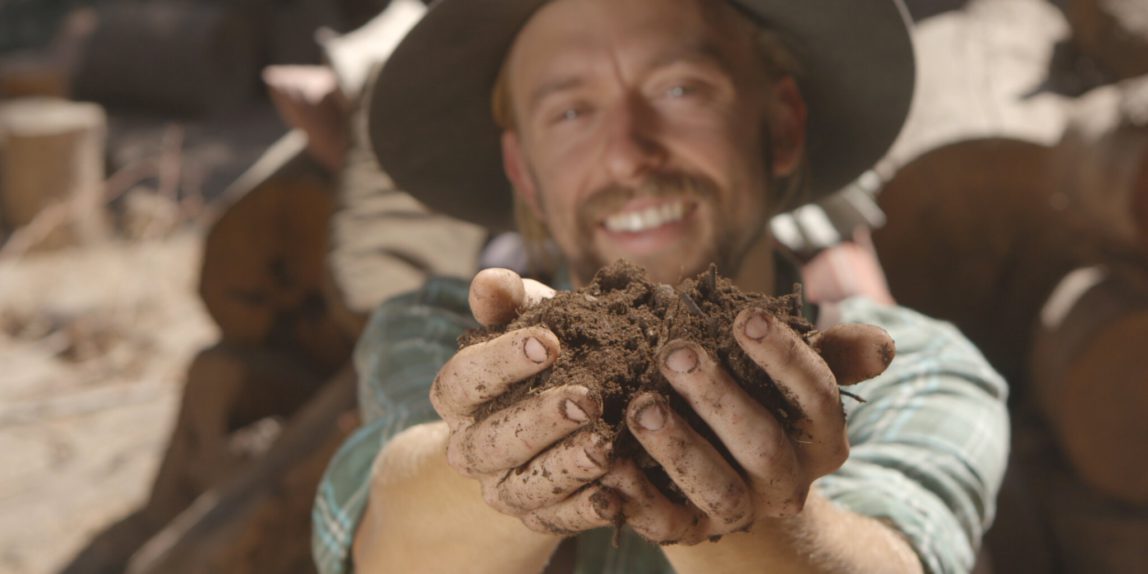Kiss The Ground is the title of a new film about climate change which was released on Netflix today. I had heard a lot about it, so sat down to watch the film this evening. As part of my research for the FMP, I have been consuming a lot of books and films about climate change. This new film seemed like a good new source.
The film is not sceptical about climate change and acknowledges that it a major threat to humanity. However, the film takes a very different direction from the usual fossil fuel narrative and instead focuses on the role of soil.
In its prime, healthy state, soil is alive with small creatures, bugs and microbes. These creatures do the work of consuming organic matter, fixing carbon and making the soil nutritious for plants and the animals which eat them. Those end consumers include human beings.
Since the second world war, farming has changed from being a family owned, labour intensive activity to a highly industrialised one. Mechanised tilling and excessive use of pesticides have rendered the soil sterile and only capable of producing crops when increasing amounts of nitrate based fertilisers are applied. In this degraded state, soil becomes an emitter of carbon dioxide rather than a sink as it should be. It should be constantly fixing carbon from atmospheric CO2 to create fertile soil.
The central premise of the film is that if the industrial degradation of the soil is reversed through careful regenerative management on a large enough scale, the drawdown of CO2 will start to reverse climate change.
The science of this is correct. What scale of soil regeneration would be required to achieve CO2 drawdown is questionable. But the big question that started to form in my mind was “where are the bad guys”?
Climate change is admittedly a complex issue, but most discourses include some mention of CO2 emissions into the atmosphere and the fossil fuel companies that are making these fuels available. Not a mention in Kiss The Ground. This made me suspicious. Is the film another piece of billionaire funded PR to take our gaze off the real villains? The film is very positive and upbeat about the possibilities of mitigating this crisis, so I felt rather guilty about harbouring this doubt. But I know that the oil and coal companies fight dirty, so the doubt wouldn’t go away.
After my viewing I started doing some research. Reviews of the film were cultural and concentrated on the quality of the film making. So I turned my attention to those people involved in creating the film. lt is narrated by actor Woody Harrelson who has a history of environmental activism, is a vegan and describes himself as an anarchist. This does not seem like a man who would be taking oil company dollars. Likewise the director, Joshua Tickell has a good record of making films with a positive environmental message and challenging pollution and corruption.
This research encouraged me, I was able to take on the message of the film more fully. Yes, we have a climate crisis, but it’s not all about fossil fuel emissions, there are other factors in play. This resonates with recent reading such as Climate A New Story by Charles Eisenstein.
It is easy to characterise the climate crisis as a Good Guys vs Bad Guys situation. The people of the world versus the fossil fuel companies. These companies have a case to answer, especially their refusal to act when their own scientists discovered the impact of CO2 emissions in the 1980’s. But the climate crisis is so much more complex and is the culmination of destructive and exploitative human behaviour over centuries. To try to simplify it, is to miss this complexity and also to ignore ways to mitigate the crisis.
